Most moms would bend over backward to raise a smart kid. And with the plethora of apps, videos, and other products on the market with brain-boosting claims, it may be hard to know what really works (and what's a scam). Well, look no farther than this list of scientifically vetted ways to make a baby smarter.
Turns out getting baby off to a smart start is a lot easier than you may think.
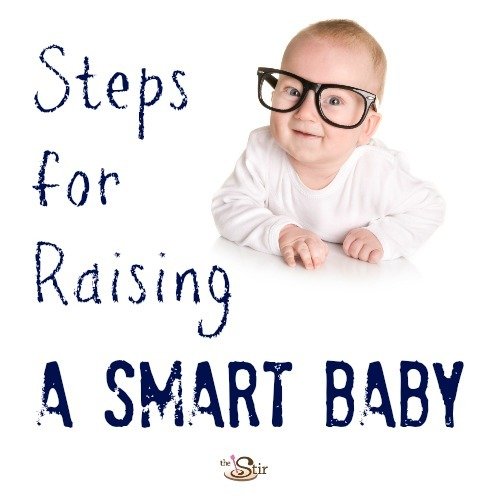
Wow, who knew #5 could have such an effect?
Images © KidStock/Blend Images/Corbis; © iStock.com/Kais Tolmats
Make Faces at Your Baby

Stick out your tongue. Cross your eyes. Frown. Smile. It's all good as far as a baby's brain is concerned. "Babies as young as 3 months of age can recognize their parent’s facial expressions," says Harry Broome, MD, a physician at MVP Kids Care in Phoenix. "And being able to accurately read facial expressions and interpret moods are important aspects of brain development." In other words, it's not just about IQ, but EQ, AKA "emotion intelligence," too.
Talk Your Baby's Ear Off
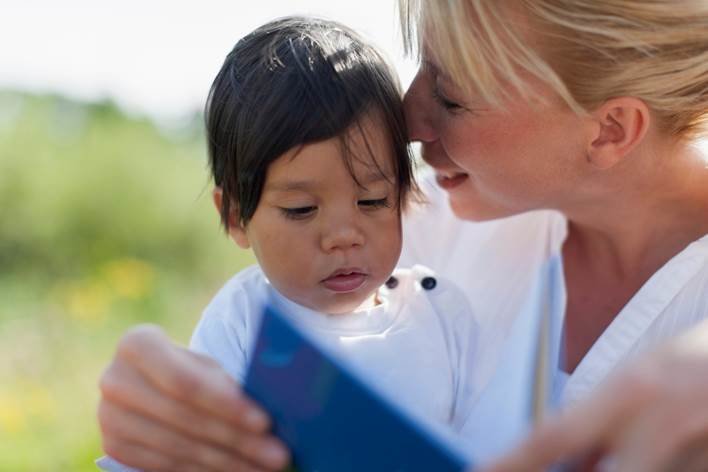
Even if your baby doesn't look like he's getting half of what you're saying, it's still important to prattle away, since some of it does sink in. "Vocalizing a steady stream of information increases your baby’s brain power," says Dr. Broome. If you're at a loss for words, just talk about your day or pick up a book for instant fodder. It doesn't matter if it's a children's book or the latest issue of Vogue — any words are good words.
Point Your Finger

Whenever possible, don't just talk to your baby — point to what you're talking about, whether that's the colorful fall leaves or the storm clouds near the horizon. "Research has shown that babies learn language faster if you point to an object while saying the word," says Dr. Broome.
More from The Stir: 8 Things Babies Know That'll Blow Your Mind
Breastfeed

Studies have long found that breastfeeding is correlated with higher intelligence scores, and while some have argued this link is due to the mom's education and income levels, recent research adjusting for these factors say au contraire — it boils down to breast milk, period. Something in the composition of breast milk — the fatty acids, perhaps — enhance cognitive abilities. Whatever it is, it's just one more reason to consider nursing.
Go Fish

Fish are rich in DHA, a type of omega-3 fatty acid that's an important building block for brain development. And even if your baby isn't eating solids yet, you can transfer some DHA to him through your breast milk. According to one study in the journal Pediatrics, breastfeeding moms who'd downed 10 mL of cod liver oil daily for 3 months after delivery ended up with 4-year-olds who scored higher on cognitive tests than kids with moms who didn't take the supplement.
Skip the Screens
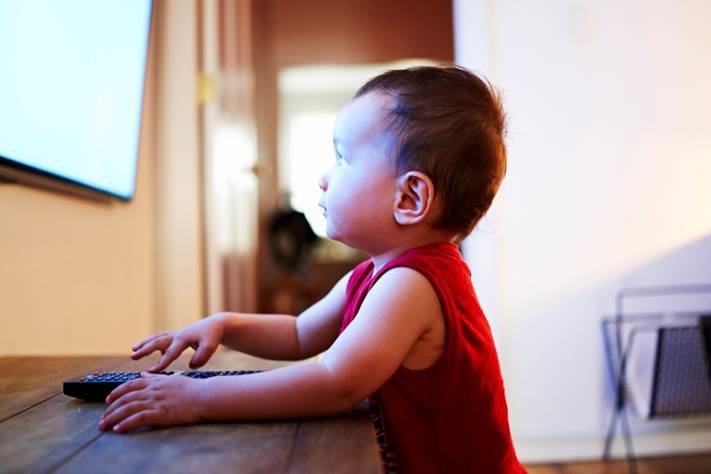
Sure, "electronic babysitters" like TVs and iPads may seem like a godsend when you haven't showered in five days, but the American Academy of Pediatrics recommends no screen time at all for babies under age 2. The reason: a baby's brain develops at a breakneck pace during those first two years and benefits most from interacting with real live people like mom and dad. Studies have also shown that excessive media use can pave the way toward attention problems and difficulties at school. So to keep baby's brain cells firing, turn off the boob tube.
Teach Some Sign Language
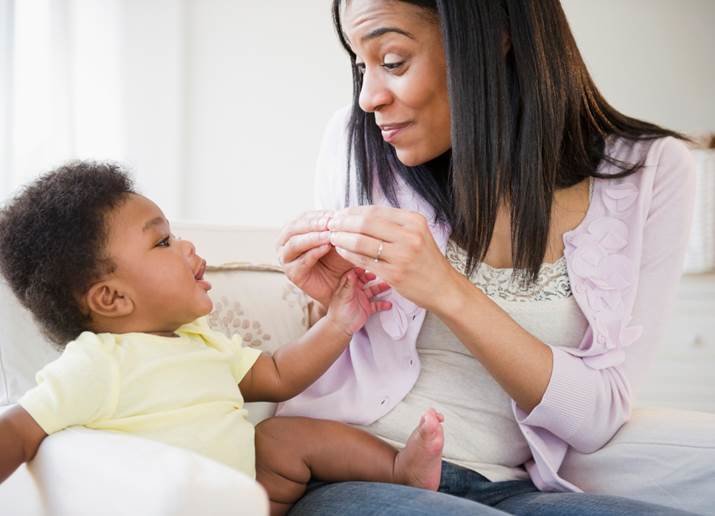
Long before your baby can talk, he can sign! And it's not just cute and fun to communicate on the early side with your tykes. According to a study at UC Davis, infants who signed had 12 point higher IQs than those who don't.
More from The Stir: 5 Baby Sign Language Basics You Should Learn
Play Some Tunes
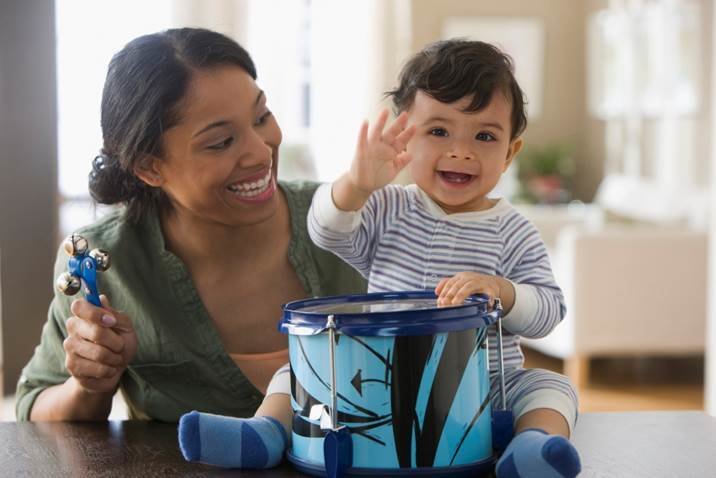
Maybe you've heard of the "Mozart Effect," which found that babies who listened to classical music performed better on cognitive tasks. Studies have shown that there is a slight effect — of about 1.5 IQ points. But experts say even better than listening is to let your kids play music. Studies have found that kids who play music score better on SATs, so why not start your tot early with a tambourine or good old baby rattle?
Stimulate ALL the Senses
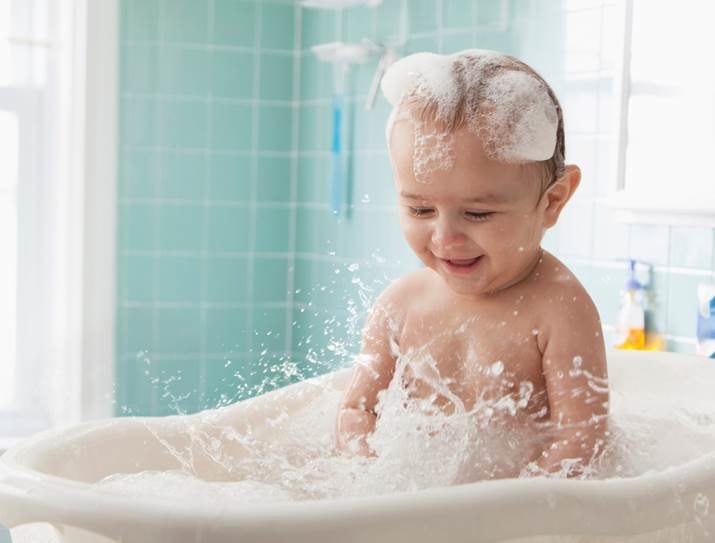
Picture books? Great. Music? Lovely. But recent research by UC Irvine has found that "enriched sensory environments" that combine visual, auditory, tactile, and other stimuli can cause up to a 10-point spike in IQ (it may also help with symptoms of autism). So rather than focusing on one sense, try two or more, like a bath with scented bubbles or a scratch-sniff-and-touch book like Pat the Bunny.
Get Your Baby to Sleep

Moms all love when babies sleep — the more, the better. And it turns out it doesn't only buy you some peace and quiet, but some brain-boosting benefits too. "Folks might be surprised to hear that we frequently see babies who are sleep-deprived," says Dr. Broome. "Many parents are busy and baby’s naps are relegated to a car drive between errand #1 and #2. But cat naps aren’t sufficient for babies. They need much more uninterrupted rest — two hours or longer — several times a day."
Read to Baby From Day 1
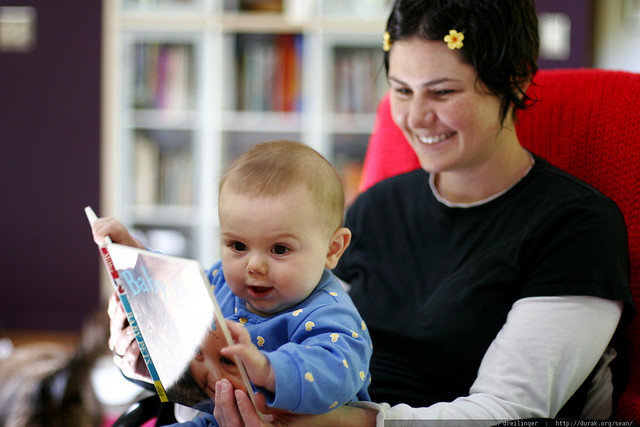
As soon as your baby is born, you should be reading to him daily. Sure, it might not look like much is soaking in, but the American Academy of Pediatrics feels otherwise. In 2014 the AAP issued a new recommendation that babies should be read to regularly since birth</a>; this introduces them to more words and cultivates their language skills for later on. In fact, the AAP estimates that by age 4, babies who are read to less often (typically in lower-income families) have heard 30 million fewer words than their peers. That's a LOT of words!
Believe in Your Baby

Fine, so your baby isn't crunching math equations or solving world hunger … yet. But studies suggest that just believing that your kid is smart can become a self-fulfilling prophecy. So go ahead and envision your baby as the next Einstein and you may be pleasantly surprised down the road.
More from The Stir: Babies Get It's Not All About Them




